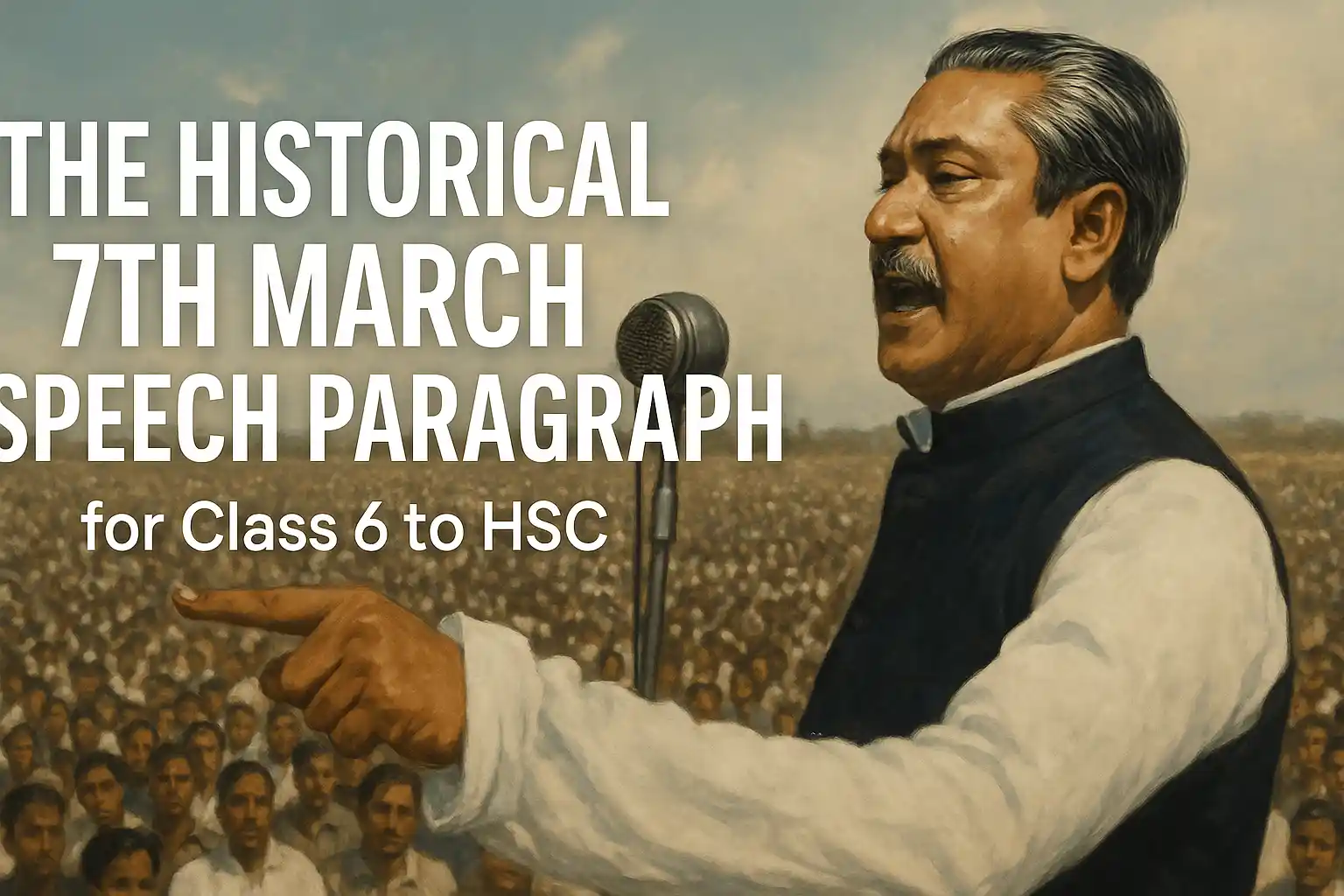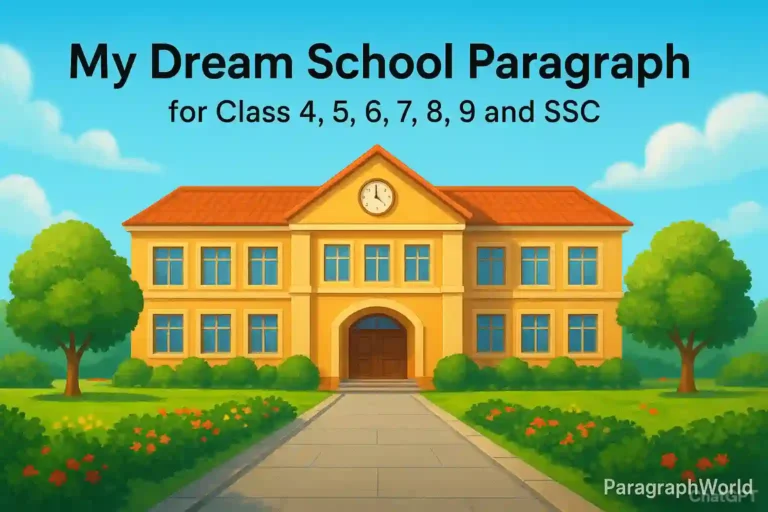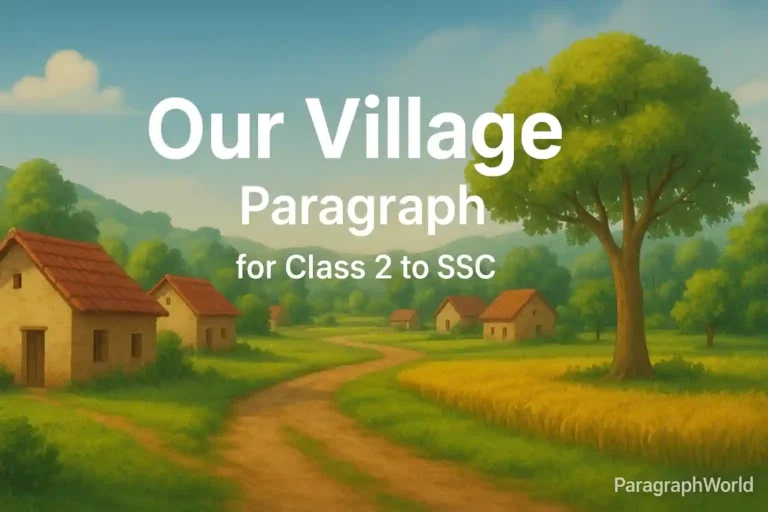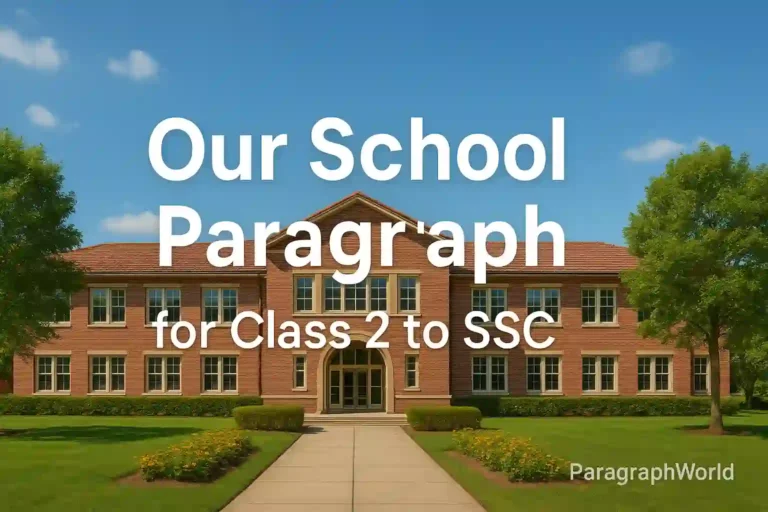The Historical 7th March Speech Paragraph for Class 6-12
The 7th March Speech is more than just a moment in our history—it is a source of deep pride and inspiration for the people of Bangladesh.
In this article, I have explained the meaning, message, and impact of this great speech in a way that students can easily understand and use in their study and exams.
In this paragraph, we’ve tried to cover the following questions.
- What is the historical 7th March?
- Who delivered the speech on this day?
- Where was the speech given?
- What was the main message of the speech?
- Why is the 7th March speech important?
- How did it inspire the people of Bangladesh?
- What role did it play in the Liberation War?
- How is the day observed today?
7th March Speech Paragraph 150 Words for Class 6-7
The 7th March Speech is a historic moment in Bangladesh’s struggle for freedom. On 7th March 1971, Bangabandhu Sheikh Mujibur Rahman gave a bold speech at the Racecourse Ground in Dhaka. He spoke in front of a huge crowd with strong emotion and deep love for his country.
His speech was not just words; it was a clear call for freedom. He told people to prepare for the final struggle and said, “The struggle this time is the struggle for our emancipation.” These words sparked courage in every heart.
This speech gave hope and unity to millions of Bengalis. It made people ready to fight for their rights. Just a few weeks later, the Liberation War began.
Today, we remember this speech with deep respect. Schools, colleges, and TV channels observe the day with programs and discussions. In 2017, UNESCO recognized it as part of the world’s documentary heritage, proving its global value.
Historical 7th March Speech Paragraph in 200 Words (Class 8)
The 7th March Speech is a turning point in the history of Bangladesh. On this day in 1971, Bangabandhu Sheikh Mujibur Rahman gave a powerful speech at the Racecourse Ground in Dhaka. Thousands of people came to hear him speak during a time of fear and unrest.
In that speech, Bangabandhu did not declare war directly. But his words gave a clear message that freedom was near. He said, “The struggle this time is the struggle for our emancipation,” which awakened the whole nation.
The speech united the people of East Pakistan. It gave them courage, hope, and direction. From villages to cities, people started preparing for the fight for independence.
This speech is known as the spark of the Liberation War. Just 18 days later, the war began. His voice became the voice of a nation rising for justice.
Today, the 7th of March is observed across the country. Schools, colleges, and TV channels organize special events. In 2017, UNESCO added this speech to the Memory of the World Register.
This speech was more than a call—it was the heart of our freedom. It showed how strong words could shake a nation and start a new journey. It is still a proud chapter in our history.
The Significance of 7th March Speech Paragraph for Class 9-10/ SSC (250 Words)
The 7th March Speech is a turning point in the history of Bangladesh. On 7th March 1971, Bangabandhu Sheikh Mujibur Rahman gave a historic speech at the Racecourse Ground (now Suhrawardy Udyan) in Dhaka. Around two million people gathered to hear him during a time of political tension and uncertainty.
In his speech, he did not declare independence directly. But his words clearly prepared the nation for a struggle. The most powerful line was, “The struggle this time is the struggle for our emancipation,” which touched every heart.
Bangabandhu asked the people to get ready for any situation. He told them not to pay taxes, not to cooperate with the West Pakistani government, and to stay united. His speech became a hidden message for war and inspired people to rise.
This speech lit the fire of the Liberation War. Only 18 days later, the war began on the night of 25 March 1971. His voice gave strength to people from all walks of life—students, workers, farmers, and even ordinary villagers.
The speech was full of courage, emotion, and patriotism. It shaped the path of independence and gave people a dream to fight for. In 2017, UNESCO included it in the “Memory of the World” list, showing its global importance.
Today, the 7th of March is observed every year with respect and pride. Schools, colleges, and the media organize events to remember this day. The 7th March Speech is more than just history—it is the voice of a nation that stood up for freedom.
7th March Speech Paragraph for HSC (300 Words)
The 7th March Speech is one of the most powerful and emotional moments in the history of Bangladesh. On this day in 1971, Bangabandhu Sheikh Mujibur Rahman stood before a huge crowd at the Racecourse Ground in Dhaka. He delivered a speech that would change the fate of the Bengali nation.
The people of East Pakistan were suffering from injustice and discrimination. The general election was held in 1970, and the Awami League won the majority. But the Pakistani rulers refused to hand over power. Tensions were rising fast.
In his speech, Bangabandhu did not directly declare independence. But he gave a strong and clear message that the people had to prepare for freedom. He said, “The struggle this time is the struggle for our emancipation.” These words gave people courage and hope.
The 7th March Speech inspired the entire country. People understood that the time had come to fight for their rights. From that moment, villages and towns began preparing for the Liberation War.
The speech also gave unity to the movement. It became the turning point in our journey to independence. Eighteen days later, on the night of 25 March, the war began.
This day is now observed across the country with great respect. Educational institutions hold discussions, and media channels show documentaries and programs. In 2017, UNESCO recognized this speech as a world documentary heritage.
The 7th March Speech is not just a historical event. It is the voice of a nation’s dream and the spirit of our independence. Even today, it reminds us that powerful words can guide people through the darkest times.






